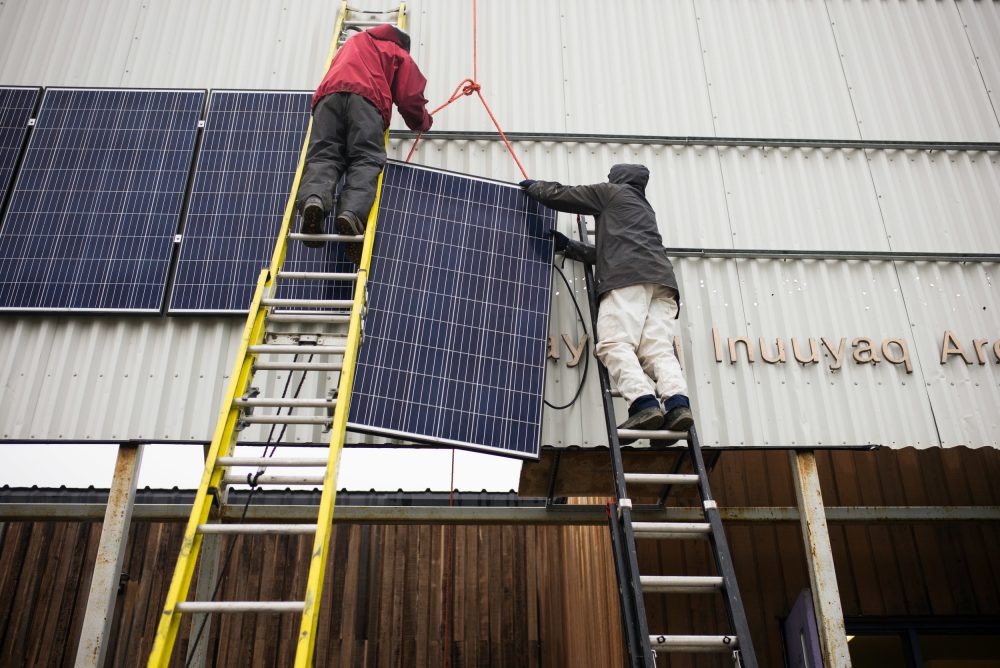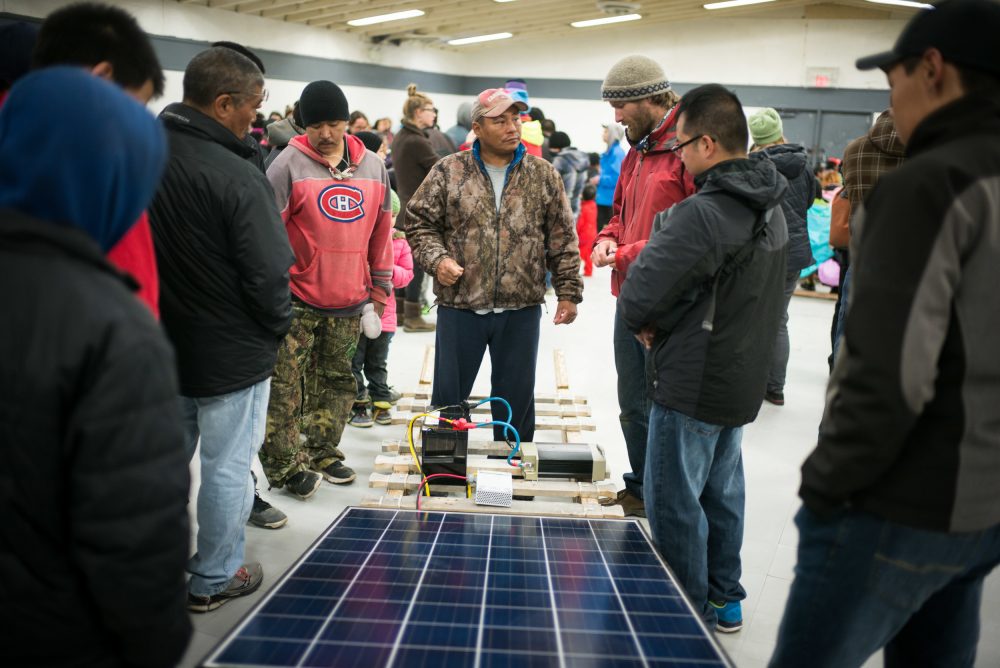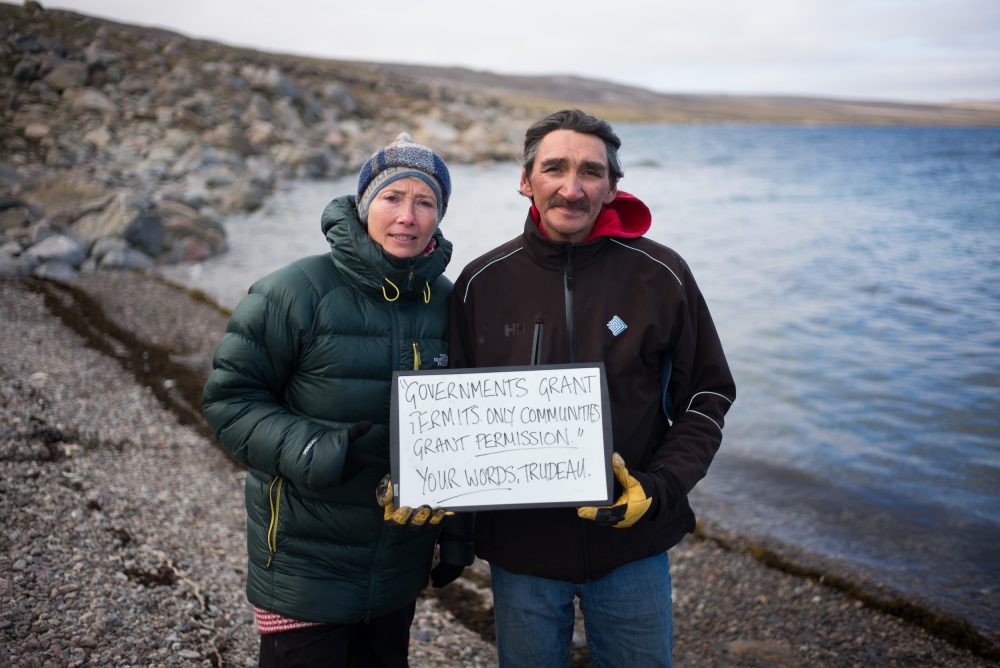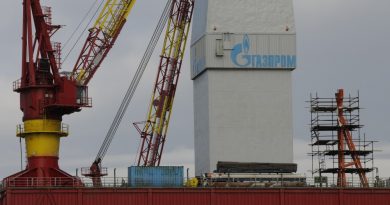Arctic community plugs in solar and star power in fight against climate change and seismic testing

Greenpeace has come to deliver solar panels and offer a series of lectures and workshops in Clyde River. (Greenpeace)
The tiny Inuit hamlet of Clyde River in the Canadian Arctic is turning to star and solar power to highlight its fight against climate change and seismic testing in Davis Strait.
Residents of Clyde River, in Nunavut, are celebrating the installation of 27 solar panels on their Community Hall, with help from Greenpeace and the Vancouver Renewable Energy Coop, which is expected to increase the community’s energy independence while cutting its energy bill.

(Greenpeace)
Solar technology will enable the community to rely less on expensive diesel-generated electricity throughout the spring, summer, and fall months and will result in savings of up $4,500 a year, said Greenpeace.
“This is a happy day for Clyde River. The solar panels on our Community Hall will allow us to produce energy with less diesel while saving money at the same time that we reinvest into youth programs,” James Qillaq, the mayor of Clyde River, said in a statement. “Renewable energy that does not harm nature is exactly what we want for our planet. We are proving that solar energy is a real possibility in the Arctic. Destructive seismic blasting is just not needed.”
Turning to Hollywood star power

The Inuit hamlet has also turned to star power to highlight its high-profile fight against plans for seismic testing in the waters of ecologically fragile Davis Strait, between Canada and Greenland. The community played host to Oscar-winning British actress, climate activist and storyteller Emma Thompson.
Thomson, who will be hosting an event in Toronto tonight to share stories from her experience in the Canadian Arctic, spent 10 days in Clyde River and on board Greenpeace’s ship the Arctic Sunrise, which brought in the solar panels and the crew to install them.
She participated in a series of community activities and sailed to some of the ecological hotspots under threat from seismic blasting, Greenpeace said.

‘A ghastly carousel of destruction and greed’
The residents of Clyde River, on the northeastern coast of Baffin Island, want the Supreme Court of Canada to revoke the permit granted to an international consortium of exploration companies by Canada’s National Energy Board (NEB) in June of 2014 to conduct a seismic testing project to detect and measure the presence of petroleum and natural gas deposits in Baffin Bay and Davis Strait.
They argue they have never been properly consulted about the proposed seismic survey which would involve “detonating air guns that are 100,000 time louder than a jet engine for 24 hours a day for five months per year for a period of five years.”
Nader Hasan, the lawyer representing Clyde River residents, said his clients fear “irreparable harm” to their way of life if the migratory patterns of marine mammals are disrupted as a result of seismic testing. The community will get a chance to present its views to Canada’s highest court on November 30.
“The Arctic is melting largely because of oil and gas consumption. The response of gas and oil conglomerates is to rejoice, pile in and seismically blast the place in search for more,” Thompson said in a statement. “It’s a ghastly carousel of destruction and greed.”
Related stories from around the North:
Canada: Energy challenges in Canada’s North, Eye on the Arctic
Finland: Helsinki consumers cool on solar energy, Yle News
Norway: Japan wants wind power from Arctic Norway, Barents Observer
Russia: No alternative to Arctic oil says Russia environment minister, Barents Observer
Sweden: Will Sweden be able to produce enough energy in the future?, Radio Sweden
United States: Despite winter darkness, solar power might work better in rural Alaska than you’d expect, Alaska Dispatch News



